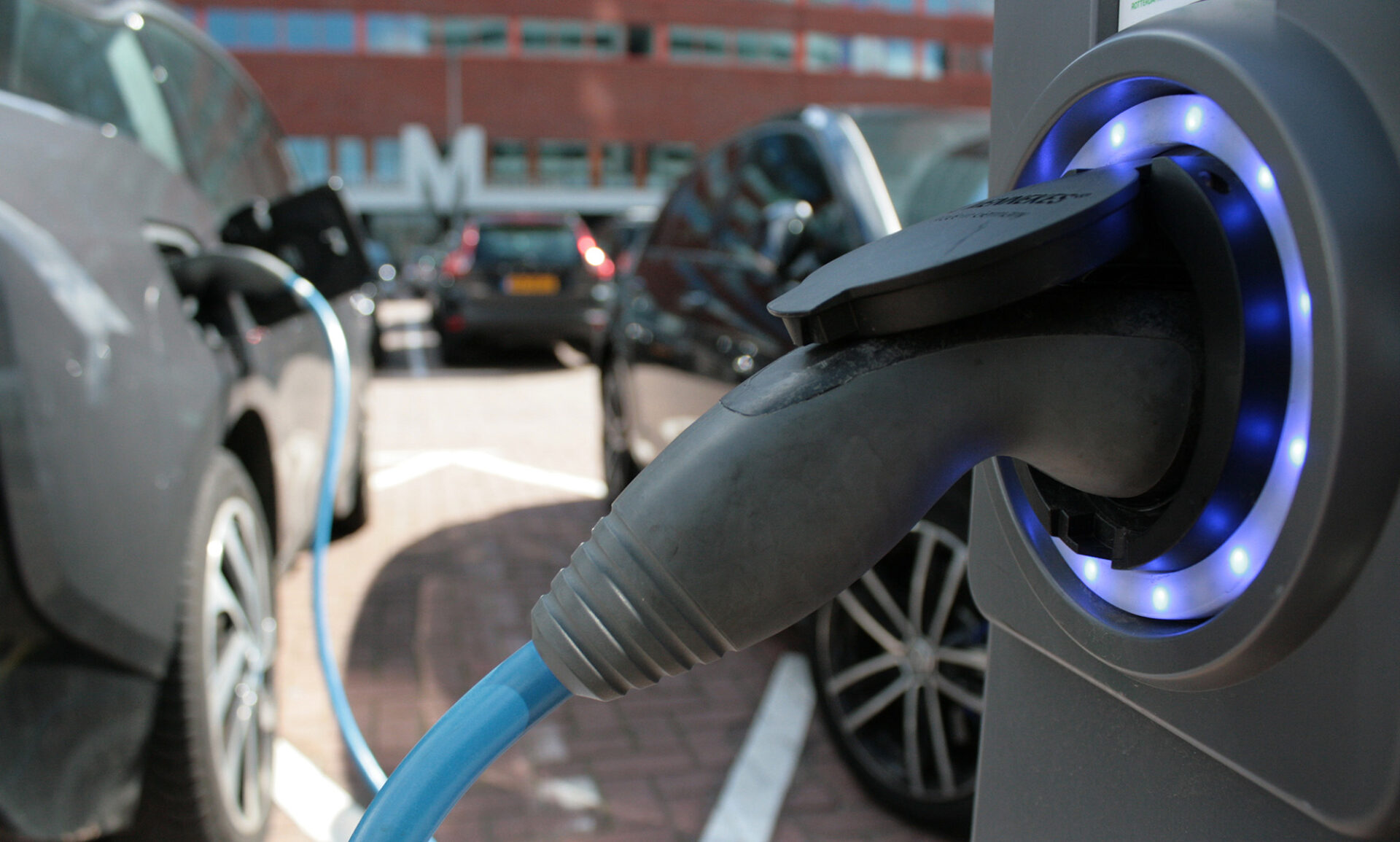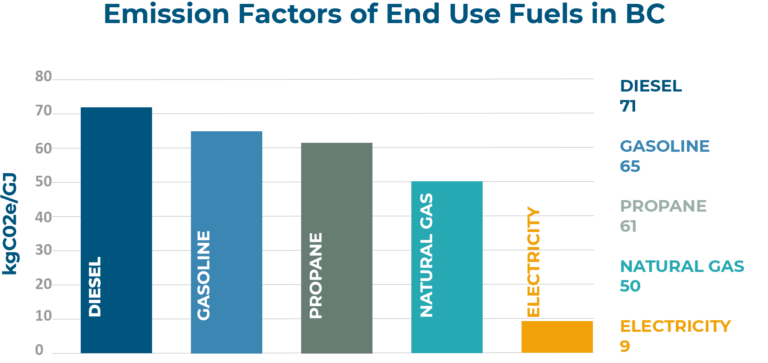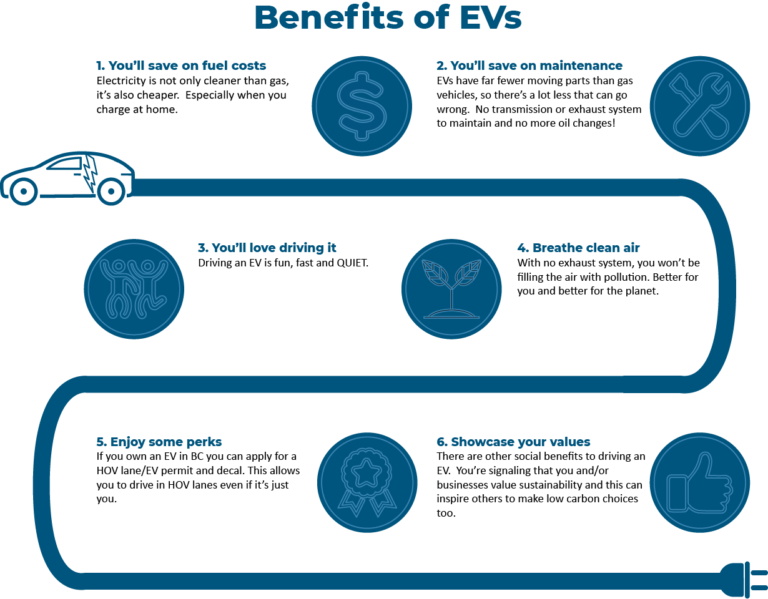Charge North is helping to make electric vehicle ownership more feasible and advantageous. Strategically locating Level 2 and DCFC stations and supporting a public awareness campaign to highlight the benefits of EV ownership in rural areas are key to accelerating EV adoption in the Charge North region.
TYPES OF ELECTRIC VEHICLE CHARGERS
Charge North is installing Level 2 chargers, while BC Hydro and the BC Ministry of Transportation and Infrastructure are primarily installing “DCFCs” (Direct Current Fast Chargers, or “Level 3” chargers) around the region as well. What’s the difference? See below.

Level 2 Stations
All EVs can plug into Level 2 chargers. They are the most common public charger and would be the type of charger you'd install at home or at work. They require 240V, similar to your clothes dryer, and deliver an 80% charge in approximately 4 to 6 hours.

DCFC stations
All fully electric EVs can plug into fast chargers, or "DCFCs". They are the quickest form of charging, delivering an 80% charge in less than an hour. They are found along major travel routers at community gathering location and are usually pay-per-use. They have one or both types of plugs (CCS system or CHAdeMO system) depending on the make of your EV.
For up to date information on charging stations in BC
DRIVING ELECTRIC VEHICLES IN A COLD CLIMATE
Both gas and electric cars have lower efficiency in extreme temperatures – hot and cold. The big difference is because some EVs have shorter total driving range than gas cars, the loss in efficiency can be more problematic. Nevertheless, EVs can and are being driven year-round in places with cold winters.
Check out this video from Prince George, as well as the Cold Weather FAQ series
THE BENEFITS OF DRIVING EVS
Electric vehicles produce significantly fewer greenhouse gas emissions than vehicles burning gasoline or diesel in an internal combustion engine. Compare the emission intensities of different energy sources in British Columbia:
This helps to explain why electrifying passenger transportation is one of the Big Moves for local governments that are aiming to reduce local greenhouse gas emissions.
Rebates are also available to purchase an electric vehicle and install charging equipment
MORE RESOURCES
- Emotive: The Electric Vehicle Experience
- Website
- YouTube channel with videos about the experiences of driving electric vehicles in British Columbia
- BC Hydro’s Guide to Electric Vehicles
-FortisBC resources on electric vehicle charging
- “Electric Vehicles 101” presented by Plug In BC
- Rebates from the CleanBC Go Electric program




